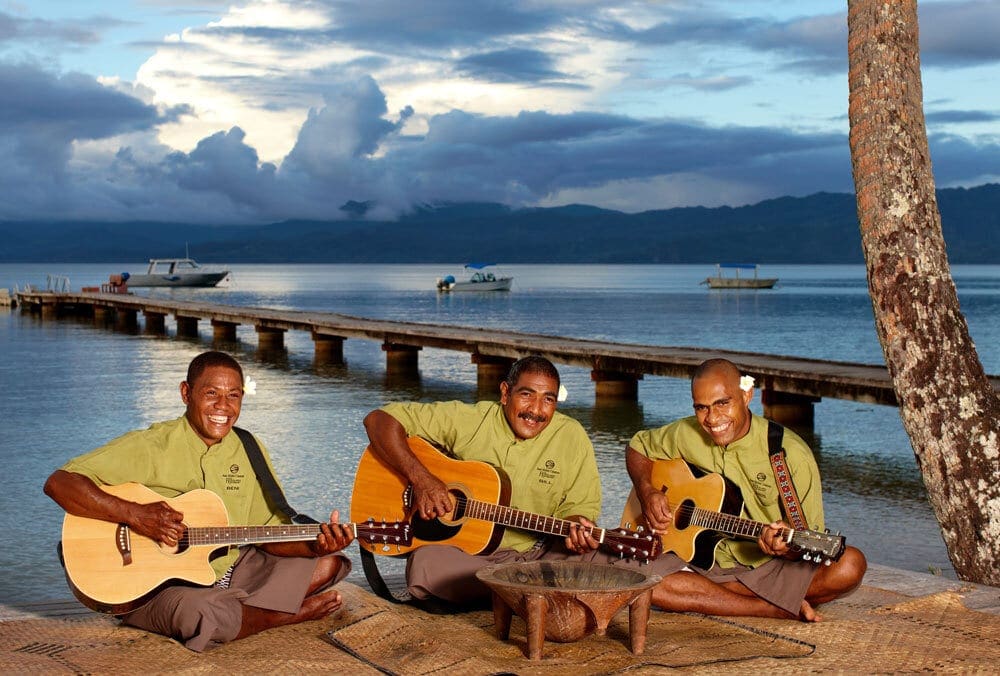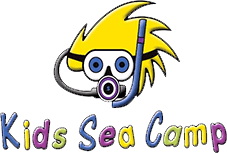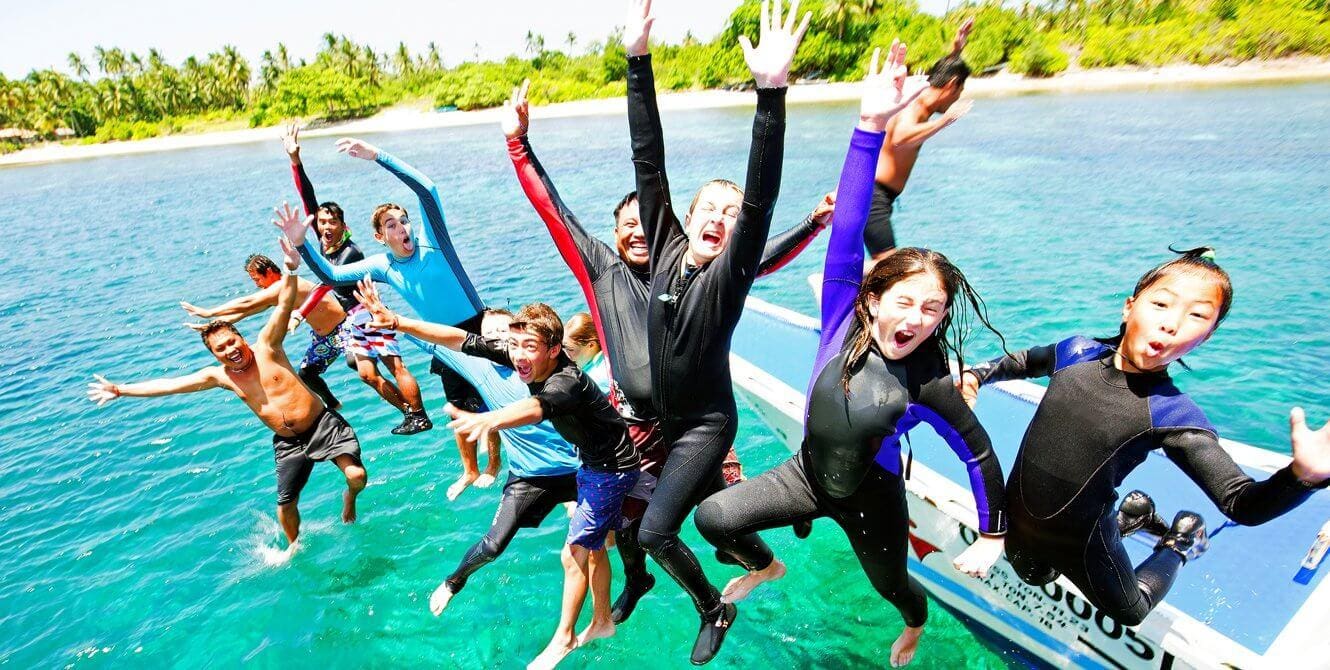Fiji changes a young adult’s perspective on life at Kids Sea Camp
By Liam Sallee, age 14, I took a trip with my family to Kids Sea Camp at Beqa Lagoon Resort on Fiji, an island in the middle of the Pacific, I view my life pretty differently since that amazing experience.
Before my trip to Fiji, I had no clue that we were going to visit a village inhabited by what I would consider poverty-stricken families and a school that didn’t have enough notebooks, pencils, or any routine supplies for their children. I thought we were just going to be scuba diving, but meeting those children that did not have the most basic things I have in my life, hit me hard.

I realized that what we view as problems in our society, not having a girlfriend, not being invited to that party, are drastically different than their problems, which are much more real and significant. They spend time worrying where the next meal will come from, hoping for medical treatment during sickness, and the ability to get through the jungle safely when walking to school. The experiences I had in Fiji made me realize how fortunate I am, and to appreciate the little things I never gave much thought to.
When I heard my dad, sister, and I were traveling to the Fijian Islands I didn’t know exactly what to expect. Learning that the islands are in the middle of the Pacific Ocean, I pictured a chain of islands full of luscious jungles, lots of sunshine, and warm blue water. To say that my experience was so different from that picture would be an understatement. When we arrived at the boat to take us to our island, the rain was falling so hard it felt like pellets against my skin. Big waves didn’t help either, surf splashing onto our boat soaking our clothes. Yet when we arrived on the island of Beqa, the locals and staff from the dive resort were smiling and singing; they helped us off the boat, and gave out hot beverages.
Already I was learning how friendly the Fijian people were. They taught me some simple basics of the native language, “Bula” meaning hello and “Moce” meaning goodbye. I thought at the beginning of the week, the weather was so important, but later I realized that it was the people of Fiji that left the strongest mark.
While the diving was truly amazing and all the other Kids Sea Camp families were awesome, getting to know the local inhabitants meant much more in the long run. Every day we dove at least twice before going back to the resort for lunch. After that, we would usually play soccer or volleyball with the staff and villagers. When the locals would come, I realized that they were very different from us outwardly, but much the same on the inside.
Some kids would show up in torn up shirts and shorts with all kinds of stains that looked to be weeks or months old. After a couple of days, we started to know the staff and villagers better. Every day we would walk to their villages and they would smile cheek to cheek and welcome us with the traditional greeting of “Bula”.
It was the 4th day when we entered the Ravi Ravi village in Fiji. Fijian poverty hit me very hard. I saw families with four or more children and adults living in huts and tiny shacks. To this day that picture has never left my mind. Instead of being sad, I saw the villagers happy as can be doing their hard daily work. I couldn’t even imagine living like that. Seeing them living with almost nothing and being as happy as they were made me realize how my everyday problems are not even close to being big.
The next day we visited a school and that left the most lasting impression. Many of us brought donations as well as school supplies for the students. As we walked past the village and into the jungle, the trees became bigger and the path became more rugged and untamed. Finally, as we hiked up the last hill, the school came into view. Kids were playing on what was supposed to be their playground. The dirt playground consisted of a basketball hoop made out of a wooden bucket and tree leaves, attached to a big tree branch, and two swings made out of cardboard, also hanging from a tree.
The inside of the classrooms was also impactful. As we walked inside, I saw what kids use every day for school: notebooks, pencils, and markers. The big difference between ours was that each classroom just had a few pencils, notebooks, and markers, so three kids had to share one pencil, marker, and notebook. I had never thought of lacking materials in schools. If we don’t have them we simply go out and buy whatever we need. Those kids did not have this opportunity. I know the materials that Kids Sea Camp arranges for the school helps them, but deep inside I feel like we could have done so much more.
I feel like I changed for the better, after my journey to Fiji with Kids Sea Camp to dive and learn about the Fijian people. I realize how the little things that we have, so many others don’t. Those little things aren’t little at all to kids in Fiji and elsewhere around the world. I can’t even imagine waking up every day and walking 35 minutes through the jungle to go to school. I will never forget the kids at the school with no windows, floors, or books functioning in class, and still being so good-natured and happy.
I take away from my trip that the little things in life mean the most, and family is important. While diving with sharks underwater was an amazing experience, my most lasting and important impression was to appreciate how fortunate I am, to not take basic things for granted, and to realize that I have a responsibility to reach out and help others who are less fortunate.
I would like to say thank you to my family and my father for helping me see such a contrast in the world. And a special thanks to Tom and Margo Peyton and Kids Sea Camp for creating such a meaningful vacation. I can’t wait to experience our next family adventure with KSC in the Philippines this summer.
Liam, his sister Eliza and father Skip will be attending their 8th Kids Sea Camp week this year in the Philippines. Liam has almost 100 dives.

